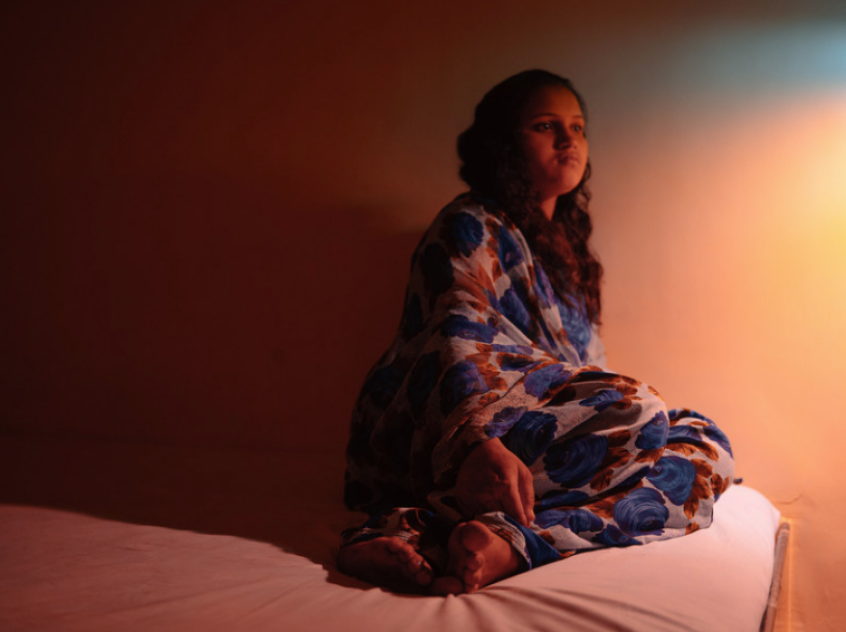For many of us, the word 'abolition' conjures up images of William Wilberforce, Amazing Grace, and the Transatlantic Slave Trade. In schools, abolition and slavery is usually part of a history lesson.
The reality is that the problem of slavery is far from historic and the need for abolitionists is greater than ever.

Slavery may be illegal almost everywhere, but there are more slaves in the world today than ever before. In fact, more people are in slavery right now than if you added up the hundreds of years of the Transatlantic Slave Trade put together.
Sunday December 2 is the UN Day for the Abolition of Slavery – and its purpose is not simply to remember the past, but to raise up a new wave of abolitionists.
Modern slavery is one of the top three most lucrative criminal businesses, and as you are reading this 40 million people are trapped by it. People who've been sold for labour, organs, forced marriage and sex.
People like Prema.
Prema was born into a poor village family in rural India. Her mother worked as a domestic servant, and Prema was responsible for the chores in their own home, cooking and getting water every day. When she was 14 years old, like many young girls, she developed a crush on a boy.
'One afternoon while my mother was at work, I followed him to his home,' she said. 'He offered me something to eat. Because I trusted him too easily, I accepted his offer and immediately began to feel faint.'
She says that the next thing she remembers is waking up in a brothel. Weak and disoriented from the drugs, she remembers: 'I was alone and scared and didn't know where I was, or why the boy I trusted betrayed me.'
For the next year, Prema was violently abused every day. Pimps in the area of town where she was held were notorious for torturing the girls who had been trafficked to the brothels. She was physically beaten by the brothel keepers, sexually assaulted by the men who paid to rape her – and all of it through constant threats, insults and other harassments.
When she knew customers had come to the brothel, she would try to hide under beds and tables, but she could not escape the abuse. She remembers, 'The other girls with me felt that we wouldn't see the light again, and we would be confined in the darkness forever.'
But Prema's cries would not go unanswered. International Justice Mission (IJM)—the largest anti-slavery organisation in the world—had started an undercover investigation at the brothel where Prema was held captive. IJM presented clear evidence of the sexual exploitation of the girls at the brothel, then assisted police in planning a rescue operation.
'I saw the light of hope for the first time in a year,' Prema said, smiling through tears as she remembered the day she was rescued.
The girls were immediately brought to safe aftercare facilities, and the suspected perpetrators were placed in police custody. IJM lawyers relentlessly supported the trial against the suspects, and the notorious brothel owner was convicted and is currently in prison.
After her rescue, Prema moved into an aftercare home with several other trafficking survivors, where she could get the medical care and counselling she needed to start to recover from the trauma.
Eventually, Prema reconnected with her family, studied to be a nurse, and got married. She is a joyful mother and a vibrant young woman, full of hope.
When asked what she would say to her rescuers, she said: 'I want others to be rescued... We can't forget about the other girls still trapped in dark rooms – girls who asked me to pray that they would get taken out and given a chance. I want them to see that they too can have a new life.'
There are millions of people desperate for the rescue that will grant them this new life. They are in brothels and brick kilns, factories and fishing boats, rose farms and rice mills, all over the world. The need for abolitionists willing to fight the scourge of slavery has never been more urgent.
Modern slavery may seem – as the slave trade once did – like an unassailable Goliath. But every one of us has a part to play in ending it.
For ways that you can become a modern day abolitionist, go to www.ijmuk.org
Isabel Crawley is a communications assistant for IJM.













